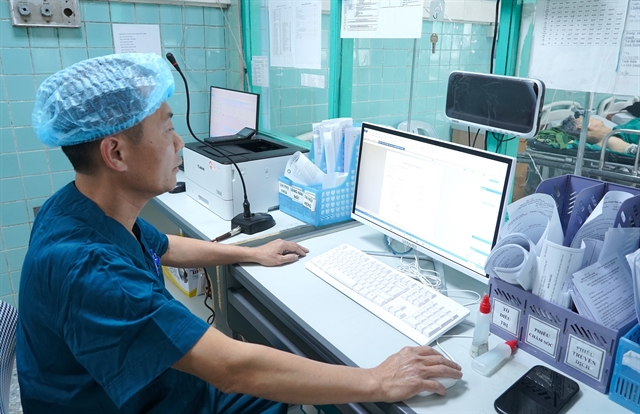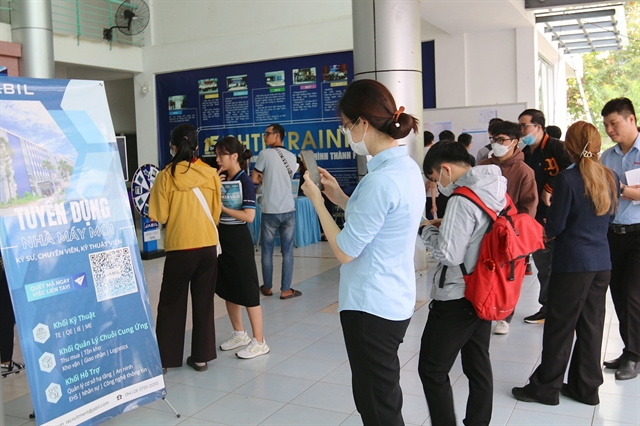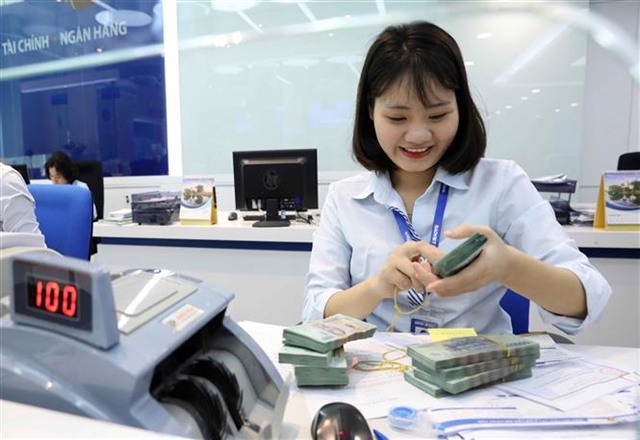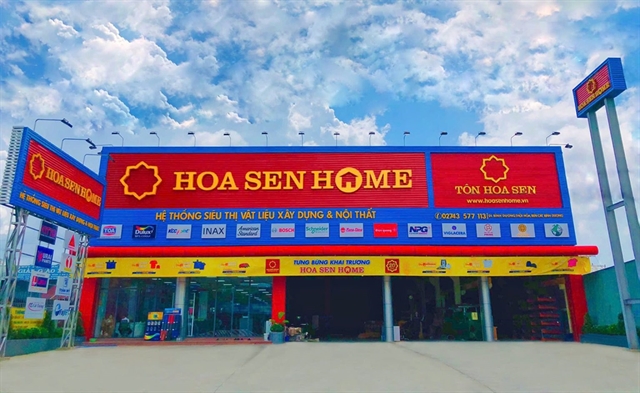 Society
Society

 |
| A job fair held at the Saigon Hi-Tech Park in HCM City in May. — VNA/VNS Photo |
HCM CITY — Despite expectations of a recovery, the labour and employment market in Việt Nam in the first half of this year did not see much improvement, according to a report of the payroll, recruitment and human outsourcing agency Adecco Vietnam.
Overall hiring demand decreased by more than 30 per cent in the first six months compared to the same period last year when the economy resumed after the impact of the pandemic.
Some sectors, such as consumer finance, real estate and retail, have experienced significant declines in recruitment. Other sectors, such as pharmaceutical, healthcare and technical sales, saw more resilient demand for skilled professionals.
As domestic and international economies still inherit many potential risks, enterprises are gearing towards promoting lean personnel structures, focusing on recruiting replacement positions, and adopting a more selective approach to filling vacancies rather than expanding to new positions.
Although the number of vacancies of IT companies decreased by 35 per cent in the first half compared to the same period last year, the requirement for IT skills is gradually becoming more common in businesses of most fields.
Companies are increasingly looking for professionals with expertise in software development, cybersecurity, artificial intelligence, digital development, and data analytics to meet their transformation needs.
A significant drop in sales orders in industrial manufacturing led to a big lay-off in the labour force, especially in the electronics and semiconductor, textile, furniture, and chemical industries, said Trương Thiên Kim, associate director of permanent recruitment services at Adecco Vietnam.
As factories have been leaning towards digitalisation, automation and zero-carbonisation policies, there is a shift in labour requirements, with a decreasing demand for low-skilled and repetitive manual labour. Instead, they increasingly seek workers with expertise in robotics, process automation, and advanced manufacturing technologies, she said.
Regarding the retail industry, due to the shift in consumer buying preferences, many businesses focus on optimising their online presence, leading to a reduction in hiring for traditional in-store positions.
While the marketing and communications industry still maintains stable demand, traditional forms of media are seeing a decrease in job opportunities. Instead, positions related to digital marketing, search engine optimisation, search engine marketing, social media, content creation, and data analysis are highly sought-after by employers.
The recovering market has facilitated the stability in recruitment demand in finance and banking. Highly sought-after positions are related to finance, accounting, risk management and investment analysis. Moreover, the emergence of fintech companies has created more job opportunities in this sector.
The healthcare and pharmaceutical industry is anticipated to see a sustained demand for healthcare professionals in light of the Government’s goal of improving healthcare infrastructure and increasing consumer demand.
This field seeks professionals in a variety of roles, including physicians, brand managers and medical information specialists. Applying technology to upgrade the medical examination and treatment experience is also a trend that affects the industry’s hiring requirements.
Meanwhile, the construction and real estate industries have not shown any signs of recovery with very low recruitment demand.
Nguyễn Hoàng Thanh Chương, head of permanent recruitment services at Adecco Vietnam, predicts that the labour market in the second half of this year will continue to face many difficulties and has not seen any positive signs from employers.
Several industries are expected to drive the job market, such as technology, healthcare, e-commerce, renewable energy and digital services, with increasing demand for skilled professionals.
“Open positions for expat are decreasing sharply, and mainly focus only on important functions in the early stages of the investment plan. The role of expat vacancies is mainly to train and transfer technology and domestic candidates with high professional skills will be prioritised by businesses to take on these transfers,” he said.
Technological transformation is taking place in various industries and is expected to continue to thrive in the second half of this year.
Job seekers need to accelerate updating their skills in digital technology and utilising the application of artificial intelligence, digitalisation and automation into their current field to seize opportunities in a turbulent period with most strategies geared towards technology reform and cost optimisation. — VNS




